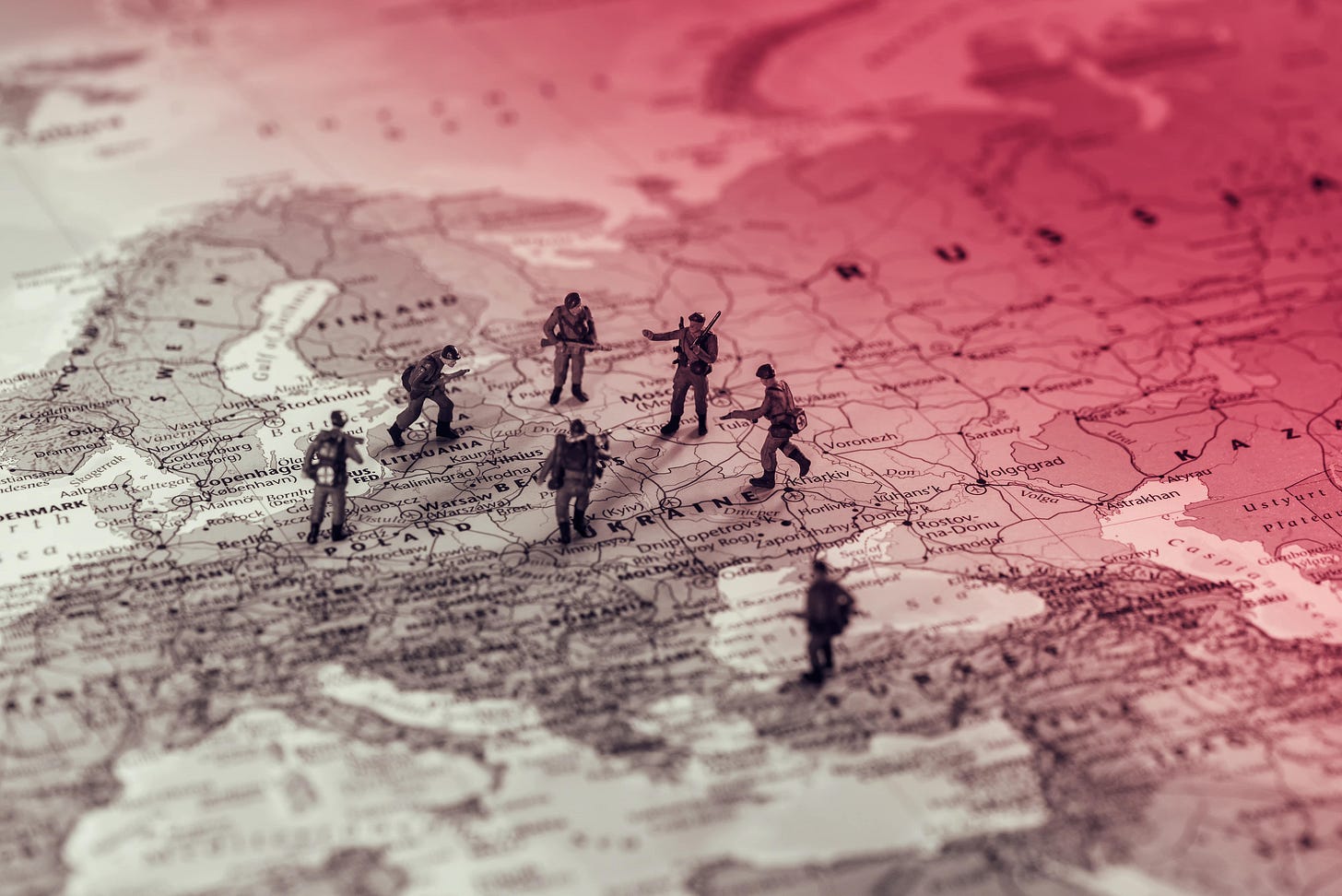Podcast: War could "spin out of control"
Michael Kimmage on a "generational conflict" with Russia
From 2014-16, Michael Kimmage handled the Ukraine/Russia dossier as a member of Secretary John Kerry’s Policy Planning Staff at the US State Department. Now a history professor at the Catholic University of America in Washington DC, he has written Collisions: The Origins of the War in Ukraine and the New Global Instability – published today as a Kindle book1 by Oxford University Press to coincide with the second anniversary of the full-scale invasion.
In his New Books Network interview with me, he says: “I don't think that we can get a good sense or a good grasp of the war if we look at it as only a singular collision. I think it must be looked at as multiple collisions” between Russia and Ukraine, Russia and Europe, and Russia and the US.
Listen to the podcast on …
New Books Network
Apple
Spotify
In his view, Russia has embarked on a long-term conflict with the US and Europe. “I'll give you two scenarios: a worst-case scenario and a better-case scenario … I'll start with the worst scenario, which is that Russia has very substantial ambitions with Ukraine. And I think what Russia has learned to do, over the course of the last two years, is not only to act with a degree of effectiveness militarily in Ukraine … but Russia has also globalised the war and has found levers of global influence to complicate things for the West, for backers and supporters of Ukraine, but also to advance its own interests”. Despite sanctions, Moscow has sustained its channels into the global economy, tapped military support from Iran and North Korea, and built alliances in developing economies. “Russia has found ways to globalise the war. It's found ways to fight the war over the long haul and I think its ambitions are really quite considerable … So, I think that they do dictate … a generational conflict, a conflict that will last for years - probably a conflict that will last for decades. And the worst-case scenario is that this conflict would somehow spin out of control … There are a lot of things that could just go wrong by accident and that could take us toward something really resembling a European war”.
Apart from Kaliningrad, Kimmage identifies Belarus as a domino. “If there were to be upheaval in Belarus, if Lukashenko were to fall … that would immediately bring in geopolitics and would bring in the Baltic republics and Poland. And whatever element of involvement they would have would be seen in Moscow as totally illegitimate … Russia is much, much more present militarily in Belarus than it was in Ukraine in 2014 or 2022. So how do you get out of that situation? How do you negotiate your way out of that situation? How do you fight your way out of that situation? It's really combustible. And, of course, Belarus borders three NATO member states, Latvia, Lithuania, and Poland. So it's not just a regional issue with those actors. It's very much a NATO issue as well … It could be very sudden - a health problem for Lukashenko - and suddenly you have a big crisis on your hands. So it's one we should be thinking about now”.
“The better-case scenario - and this is what I would recommend and urge upon strategists in London, in Washington, and throughout Europe - is to be prepared for a kind of long-term commitment and, at the same time, to seek out certain rules of engagement in a way that takes us back to the early Cold War. You had high levels of conflict between the West and the Soviet Union and lots of that was scary and difficult to control. But they did manage to figure out where to fight and where not to fight. So, perhaps rules of engagement can be discovered over time if the mental and political toughness is there to think them through. You'll have a line of contact somewhere in or near Ukraine. Russia is not going to pull back from its own ambitions but it will have met a limit to those ambitions, and then the active phases of the war might start to die down. Some people dream of a sort of armistice or a kind of Korea-type situation down the road and that might be the best thing that we could hope for. Not an elimination of the conflict and not that heads of state can sit down and figure everything out. I don't think that that's going to work unless there would be big leadership changes in Russia. But, rules of engagement … a moderation of the fighting, slowing down of the war such that a degree of normalcy returns to the region - that may be feasible. And that's probably the best that that could be hoped for”.
For my Writers’ Writers tip sheet, Kimmage chose Paris 1919: Six Months That Changed the World by Margaret MacMillan (Random House, 2002) and The Russo-Ukrainian War by Serhii Plokhy (Penguin, 2023).
The hardback will be published on 22 March.





